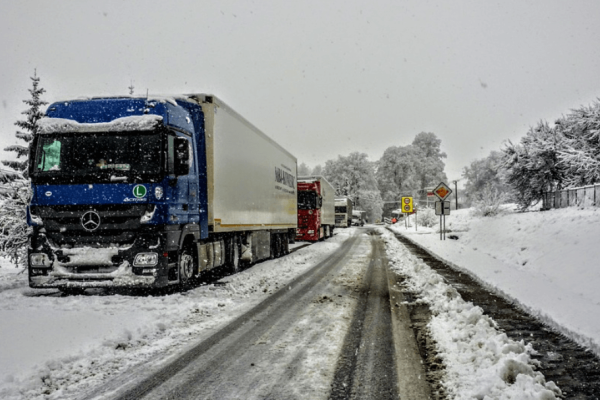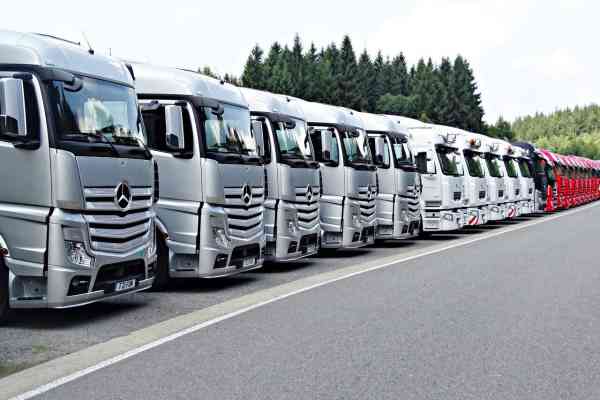May 25th, 2020 | 07:43 CEST
Daimler, dynaCERT, NEL, Nordex - who brings investors sustainable returns?
Energy and mobility go hand in hand. The automotive industry has been regulated in Europe since the 1990s with strict guidelines and requirements for fuel economy and the reduction of pollutants. Objectively speaking, various trends have emerged since then and raise questions. In the name of environmental protection, the coal phase-out was decided upon, which will lead to a reduction in CO2 emissions in Germany. In addition, the phase-out of nuclear energy was approved, an energy source that is not responsible for CO2 emissions but does pose a disposal problem. The wind industry is also heading for a disposal catastrophe for which, according to the responsible federal office, there is no solution yet. Innovations with hydrogen, on the other hand, offer solutions that can also be lucrative for investors. The future will be exciting.
time to read: 3 minutes
|
Author:
Mario Hose
ISIN:
CA26780A1084 , DE0007100000 , NO0010081235 , DE000A0D6554
Table of contents:
Author
Mario Hose
Born and raised in Hannover, Lower Saxony follows social and economic developments around the globe. As a passionate entrepreneur and columnist he explains and compares the most diverse business models as well as markets for interested stock traders.
Tag cloud
Shares cloud
An outperformer for investors
The shares of the car manufacturer Daimler have lost more than 38% in value in the past 12 months. In addition to the corona pandemic, future energy sources and storage facilities are the main sources of uncertainty. There are still no solutions for the recycling of lithium batteries and for hydrogen there is a lack of supply infrastructure.
In contrast, the shares of the engine retrofitter dynaCERT, which has brought an innovative hydrogen technology to market readiness that will make diesel engines green, have gained more than 112%. NEL, a company that focuses on the development and manufacture of hydrogen production plants, gained around 24% over the same period. If this energy source is to have a future, then government subsidies in particular promise lucrative sales. By contrast, investors in the wind turbine manufacturer Nordex are facing a 46% loss in value.
Valuation with potential
Daimler's market capitalization has shrunk to EUR 33.5 billion since May 2019. The topic of hydrogen became the focus of attention for the energy industry last year, and NEL's market capitalization increased to EUR 1.5 billion. The development of a supply network has enormous potential.
Most recently, Nordex was worth only EUR 775 million and thus slipped well below the billion EUR threshold. The innovative company dynaCERT more than doubled its market capitalization to around EUR 160 million at the most recent date. The company's latest announcement gives reason to assume that the valuation will continue to rise in the coming months and years.
Environmental protection goes over climate marketing
The terms environmental protection and climate change are often lumped together. It is undisputed that the environment can be protected. Less consumption, less emissions, less waste, everything protects the environment, but climate change is an overriding marketing term that is both activist and misleading. The climate has been changing for millions of years, since the planet was created. Periods of heat and cold alternate.
At the moment the climate is warming up, that's true, but no one can prove whether the purchase of electric cars will cool the climate down again or reduce the temperature warming. What if the climate cools down again significantly over the next twenty years? What actions and purchases will then bring about changes in the opposite direction again? We live in a business world, so be careful about politically motivated actionism.
Environmental pollution through recycling problems
The German Federal Environment Agency has found that the country is not sufficiently prepared for the recycling of end-of-life wind turbines. In a communication from the office, it says: "There is a risk of bottlenecks in recycling capacities and risks to people and the environment if dismantling is not carried out properly." The promotion of wind turbines with tax money is being phased out nationwide, and the turbines are becoming more inefficient and less powerful as they run.
Thousands of wind turbines, which at that time were considered the hope for the energy turnaround, are now becoming an environmental burden. Even the ongoing operation of wind turbines is not without controversy. They kill insects and birds. The shadows and noises are a nuisance to the local residents and, in addition, the landscape is being significantly altered. A perfect energy turnaround and careful use of taxpayers' money looks different - one might justifiably think so now.
Relief for taxpayers and the environment
dynaCERT offers a solution for now and today with a hydrogen technology for retrofitting diesel engines. Worldwide, there are currently over one billion diesel engines running as generators, on ships, in trucks and cars. With dynaCERT's HydraGEN (TM) technology the engines can be retrofitted and fuel consumption can be reduced by up to 20%. NOx emissions are reduced by up to 88%, particulate matter by up to 55% and CO2 by up to almost 10%.
The company offers the devices in subscription models, among other things, which can be of particular interest to operators of bus and truck fleets. As a result, dynaCERT receives permanent income that can exceed sales proceeds, and the one-time charge for the customer is reduced. Subsidizing with taxpayers' money is not an issue so far and there is no need to replace vehicles - reducing the burden on taxpayers and the environment. For investors, this results in a sustainable investment opportunity. With Dr. Jörg Mosolf, one of the largest European logistics companies, and the Canadian billionaire Eric Sprott, two experienced personalities have already invested in the company.
Conflict of interest
Pursuant to §85 of the German Securities Trading Act (WpHG), we point out that Apaton Finance GmbH as well as partners, authors or employees of Apaton Finance GmbH (hereinafter referred to as "Relevant Persons") may in the future hold shares or other financial instruments of the mentioned companies or will bet on rising or falling on rising or falling prices and therefore a conflict of interest may arise in the future. conflict of interest may arise in the future. The Relevant Persons reserve the shares or other financial instruments of the company at any time (hereinafter referred to as the company at any time (hereinafter referred to as a "Transaction"). "Transaction"). Transactions may under certain circumstances influence the respective price of the shares or other financial instruments of the of the Company.
Furthermore, Apaton Finance GmbH reserves the right to enter into future relationships with the company or with third parties in relation to reports on the company. with regard to reports on the company, which are published within the scope of the Apaton Finance GmbH as well as in the social media, on partner sites or in e-mails, on partner sites or in e-mails. The above references to existing conflicts of interest apply apply to all types and forms of publication used by Apaton Finance GmbH uses for publications on companies.
Risk notice
Apaton Finance GmbH offers editors, agencies and companies the opportunity to publish commentaries, interviews, summaries, news and etc. on news.financial. These contents serve information for readers and does not constitute a call to action or recommendations, neither explicitly nor implicitly. implicitly, they are to be understood as an assurance of possible price be understood. The contents do not replace individual professional investment advice and do not constitute an offer to sell the share(s) offer to sell the share(s) or other financial instrument(s) in question, nor is it an nor an invitation to buy or sell such.
The content is expressly not a financial analysis, but rather financial analysis, but rather journalistic or advertising texts. Readers or users who make investment decisions or carry out transactions on the basis decisions or transactions on the basis of the information provided here act completely at their own risk. There is no contractual relationship between between Apaton Finance GmbH and its readers or the users of its offers. users of its offers, as our information only refers to the company and not to the company, but not to the investment decision of the reader or user. or user.
The acquisition of financial instruments entails high risks that can lead to the total loss of the capital invested. The information published by Apaton Finance GmbH and its authors are based on careful research on careful research, nevertheless no liability for financial losses financial losses or a content guarantee for topicality, correctness, adequacy and completeness of the contents offered here. contents offered here. Please also note our Terms of use.




